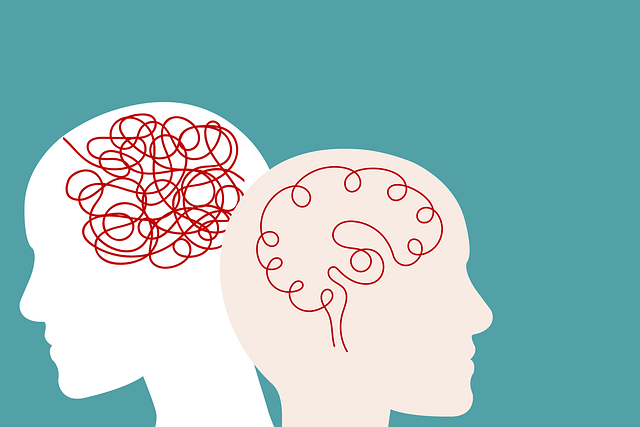Coping skills development through therapy and psychological testing is vital for young children's mental wellness. These tools help professionals assess individual needs, tailor interventions, and build resilience. By combining play therapy, evidence-based techniques, and personalized strategies, therapists empower kids to manage emotions effectively. Parents and caregivers play a crucial role by implementing self-care routines, fostering open communication, and modeling healthy coping mechanisms. This holistic approach integrates CBT, psychological testing, and risk management planning to promote emotional intelligence and reduce mental health stigma, benefiting children now and in adulthood.
Coping skills development is an essential aspect of children’s psychological well-being, shaping their ability to navigate life’s challenges. This article explores various facets of fostering resilience in young minds. We delve into understanding coping skills as a foundational element, highlighting the critical role of therapy in teaching effective mechanisms. Furthermore, we discuss psychological testing methods to identify strengths and challenges, empowering parents and caregivers with practical strategies to support children’s resilience. Through a comprehensive approach, this guide aims to enhance optimal child development by equipping them with robust coping toolkits.
- Understanding Coping Skills: An Essential Part of Children's Psychological Well-being
- The Role of Therapy in Teaching Young Children Effective Coping Mechanisms
- Psychological Testing: Identifying Strengths and Challenges to Enhance Coping Abilities
- Practical Strategies for Parents and Caregivers to Support Children's Resilience
- Building a Robust Coping Toolkit: A Comprehensive Approach for Optimal Child Development
Understanding Coping Skills: An Essential Part of Children's Psychological Well-being

Coping skills are adaptive behaviors that help children navigate life’s challenges and manage their emotions effectively. Understanding and developing these skills early on is an essential aspect of fostering psychological well-being in young individuals. Through therapy for young children, mental wellness professionals can teach them healthy coping strategies to deal with stress, anger, or anxiety relief, among other emotional responses. These skills are crucial not just for the present but also for future mental health and resilience.
Psychological testing plays a significant role in assessing a child’s coping abilities and identifying areas of concern. Risk assessment for mental health professionals becomes more accurate when these evaluations are considered, allowing for personalized interventions. By equipping children with robust coping mechanisms, mental wellness professionals empower them to confront life’s hurdles head-on, thereby promoting overall mental health and well-being.
The Role of Therapy in Teaching Young Children Effective Coping Mechanisms

Therapy plays a pivotal role in teaching young children effective coping mechanisms by providing a safe and structured environment to explore their emotions. Through play therapy, cognitive-behavioral techniques, and other evidence-based approaches, therapists help kids understand and manage stress, anxiety, and challenging feelings. Psychological testing can further guide the process by identifying specific needs and strengths, allowing for tailored interventions. This holistic approach not only equips young minds with healthy coping strategies but also fosters resilience and emotional intelligence—essential skills for navigating life’s ups and downs.
In times of crisis or heightened stress, therapy offers crucial intervention guidance, ensuring children receive the support they need at a young age. By integrating emotional intelligence into their development, these early experiences can prevent burnout later in life, particularly among healthcare providers who often encounter high-stress situations as part of their work. Effective coping mechanisms learned through therapy can be lifelong tools, helping kids grow into adaptable and resilient adults.
Psychological Testing: Identifying Strengths and Challenges to Enhance Coping Abilities

Psychological testing plays a pivotal role in the development of coping skills, especially for young children. Through structured assessments, therapists gain valuable insights into a child’s emotional and behavioral strengths and weaknesses. This process helps identify specific areas that require support and guidance. For instance, testing might reveal exceptional creativity but struggles with anxiety or difficulty in communicating emotions.
By understanding these unique profiles, therapy can be tailored accordingly. Intervention strategies can focus on building self-esteem improvement techniques to combat low confidence, teaching effective mood management skills to handle overwhelming emotions, and promoting communication strategies to express feelings and needs. These personalized approaches empower young individuals to navigate challenges and foster resilience.
Practical Strategies for Parents and Caregivers to Support Children's Resilience

Parents and caregivers play a pivotal role in fostering resilience in children, especially when navigating challenges that may require therapy for young children or psychological testing. Practical strategies to support kids’ resilience include incorporating self-care practices within the family routine. This could be as simple as dedicated time for relaxation, engaging in physical activities together, and promoting open communication about emotions. By modeling healthy coping mechanisms, adults can empower children to understand and manage their feelings effectively.
Additionally, caregivers should encourage age-appropriate problem-solving skills and help children identify resources when facing difficulties. Regular family meetings or check-ins can serve as platforms for discussing concerns, celebrating strengths, and collectively developing strategies to tackle life’s hurdles. Such proactive measures contribute to a robust risk assessment for mental health professionals while promoting the holistic development of coping skills in young individuals.
Building a Robust Coping Toolkit: A Comprehensive Approach for Optimal Child Development

Building a robust coping toolkit is an essential aspect of promoting optimal child development. This process involves equipping young minds with effective strategies to navigate life’s challenges and emotions, fostering resilience from an early age. A comprehensive approach includes integrating various techniques such as cognitive-behavioural therapy for young children, which teaches them to identify and challenge negative thought patterns. Through psychological testing and assessment, professionals can tailor interventions to individual needs, ensuring a personalized journey towards emotional well-being.
By combining evidence-based practices, mental health professionals can enhance their risk management planning, thereby facilitating effective coping mechanisms in children. This holistic approach aims to reduce the stigma associated with mental illness and promote open discussions around mental wellness. It empowers children to express and manage their emotions healthily, setting a foundation for long-term emotional resilience.
Coping skills development is a multifaceted process that, when nurtured, can significantly enhance children’s psychological well-being. By combining therapy for young children with psychological testing, parents and caregivers can identify both strengths and challenges, creating a comprehensive approach through practical strategies. This holistic method enables the creation of a robust coping toolkit, fostering resilience and optimal child development.









